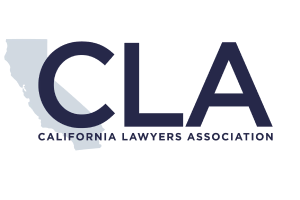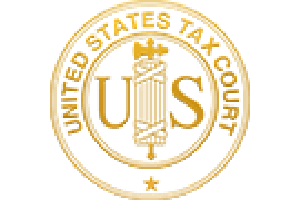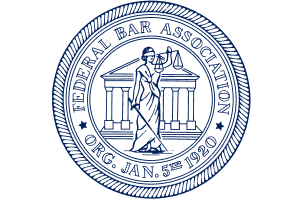Getting Results
Tax Court
Resolving IRS Tax Disputes Through the U.S. Tax Court:
Facing a disagreement with the Internal Revenue Service (IRS) over your tax situation or tax debt can feel overwhelming, but you have powerful legal options to seek a fair resolution. At Tax Lawyers Group APC, a trusted tax law firm in Los Angeles, we specialize in helping taxpayers navigate the U.S. tax court system to resolve disputes with the IRS.
Your Right to Challenge the IRS in Federal Courts
When you and the IRS cannot agree on your tax obligations—whether it’s a disputed audit, an assessed tax liability, or a tax debt—you have the right to escalate your case to one of three federal courts:
- United States Tax Court: A specialized court designed to handle tax disputes before payment of the disputed amount, offering a streamlined and accessible process.
- United States Court of Federal Claims: A court that hears monetary claims against the federal government, including certain tax refund cases.
- United States District Court: A general federal court that can adjudicate tax disputes, typically after the tax has been paid and a refund claim is filed.
Each of these courts provides an impartial forum to present your case, free from the administrative constraints of IRS proceedings. Tax lawyers widely regard the tax court system as offering the fairest and most thorough review of tax disputes. Unlike IRS administrative processes, where the agency may hold significant influence, federal courts operate independently, ensuring your tax case is evaluated based on evidence, legal precedent, and fairness.
The IRS’s Burden of Proof: A Key Advantage for Taxpayers
A critical advantage for taxpayers in tax court proceedings stems from the Internal Revenue Service Restructuring and Reform Act of 1998. For disputes arising from IRS examinations initiated after July 22, 1998, the IRS bears the burden of proof on any factual issue in the case. This means the IRS must prove that its position—whether it’s an adjustment to your income, a disallowed deduction, or an imposed penalty—is correct. This shift is a significant departure from the past, when taxpayers were often presumed liable unless they could disprove the IRS’s claims.
To leverage this advantage, you must introduce credible evidence to support your position. For instance, if you’re contesting a disallowed business expense, providing receipts, invoices, or other documentation can shift the burden to the IRS to justify their adjustment. This legal framework eliminates the automatic assumption of tax liability, giving taxpayers a fairer shot at a favorable outcome. At Tax Lawyers Group APC, our tax attorneys excel at identifying and presenting compelling evidence to maximize this procedural benefit, ensuring your case is positioned for success.
Preparing for Success in Tax Court
The key to a swift and successful outcome in the U.S. Tax Court—or any federal court handling tax disputes—lies in preparation. Organizing and collecting all relevant records and documents is essential to substantiate your position. These may include:
- Financial records: Bank statements, canceled checks, or ledgers.
- Tax documents: Returns, schedules, or notices from the IRS.
- Supporting evidence: Contracts, receipts, invoices, or correspondence related to the disputed issue.
- Witness testimony: Statements from individuals who can corroborate your position.
If you don’t have all the necessary documents in your possession, don’t worry. Our tax attorneys at Tax Lawyers Group APC can utilize court-implemented procedures, such as discovery, to obtain critical records. Through subpoenas, requests for production, or depositions, we can reconstruct the true picture of your tax situation, ensuring your case is built on a solid foundation. This thorough approach is why many experienced tax lawyers believe the court system offers the most equitable and cost-effective resolution for tax disputes.
For example, in a recent case, we represented a Los Angeles small business owner facing an IRS audit that disallowed significant business deductions. By leveraging discovery to obtain third-party records and presenting a detailed timeline of expenses, we successfully shifted the burden of proof to the IRS, resulting in a favorable ruling for our client. Our commitment to preparation and strategic advocacy sets us apart in delivering results for our clients.
Cost-Effective Litigation and Recovering Costs
Many taxpayers hesitate to pursue court action due to concerns about legal costs. However, the U.S. Tax Court is designed to be more accessible and cost-effective than other federal courts. Filing fees are relatively low (typically $60 for most cases), and the court’s procedures are streamlined to reduce the complexity and expense of litigation. At Tax Lawyers Group APC, we work diligently to keep legal costs manageable, providing transparent fee structures and tailored strategies to fit your budget.
Even more compelling, taxpayers who prevail in their case may be entitled to recover reasonable litigation and administrative costs, including:
- Attorney fees
- Expert witness fees (e.g., for accountants or appraisers)
- Costs of studies, analyses, or reports (e.g., financial or engineering reports)
- Other expenses directly related to the case
To qualify for cost recovery under Internal Revenue Code Section 7430, you must meet the following conditions:
- Exhaust all administrative remedies within the IRS, such as participating in an audit, filing an appeal with the IRS Office of Appeals, or requesting a collection due process hearing.
- Be the prevailing party, meaning you substantially prevail on the amount in controversy or the most significant issues in the case.
- Demonstrate that the IRS’s position was not substantially justified, meaning it lacked a reasonable basis in law or fact.
- Meet certain net worth requirements, which apply to individuals and small businesses.
Our attorneys are well-versed in navigating these requirements, meticulously documenting your case to support a claim for cost recovery. In many instances, recovering these costs can significantly offset the expense of litigation, making the Tax Court an attractive option for resolving disputes.
Why Choose Tax Lawyers Group APC?
At Tax Lawyers Group APC, we bring decades of experience and a client-centered approach to every tax dispute. Based in Los Angeles, we serve individuals, small businesses, and corporations facing IRS challenges, from audits and penalties to complex tax debts. Our team combines deep knowledge of tax law with strategic litigation skills, ensuring you receive top-tier representation in the U.S. Tax Court and beyond.
When you partner with us, you benefit from:
- Proven Expertise: Our tax attorneys have a track record of success in Tax Court, Court of Federal Claims, and District Court, securing favorable outcomes in complex tax disputes.
- Comprehensive Preparation: We leave no detail overlooked, gathering evidence, leveraging discovery, and crafting persuasive arguments to strengthen your case.
- Cost-Conscious Advocacy: We prioritize affordability, exploring cost recovery options and offering flexible fee arrangements to suit your needs.
- Local Insight, National Reach: As a Los Angeles-based firm, we understand the unique challenges faced by California taxpayers while handling cases nationwide.
The U.S. Tax Court system offers a fair, structured, and cost-effective path to resolve your tax issues, and Tax Lawyers Group APC is here to guide you every step of the way. With the IRS bearing the burden of proof and the potential to recover litigation costs, you have a powerful opportunity to protect your interests and achieve a just outcome.
Contact us today at 310-788-9820 to schedule a confidential consultation. Let our experienced tax attorneys assess your case, organize your evidence, and represent you in tax court with confidence.





















